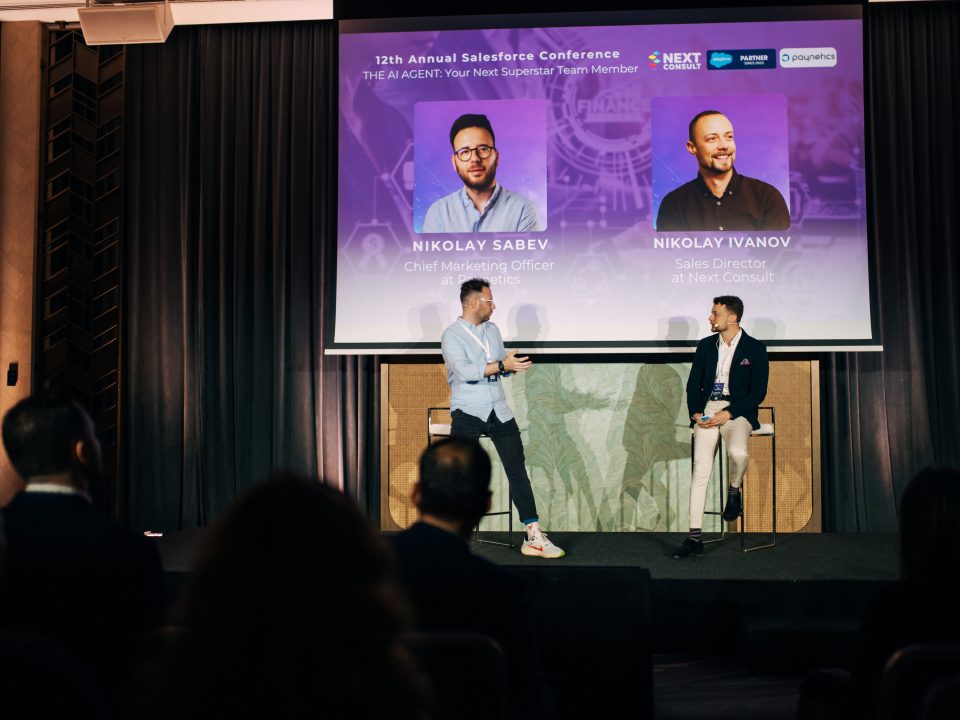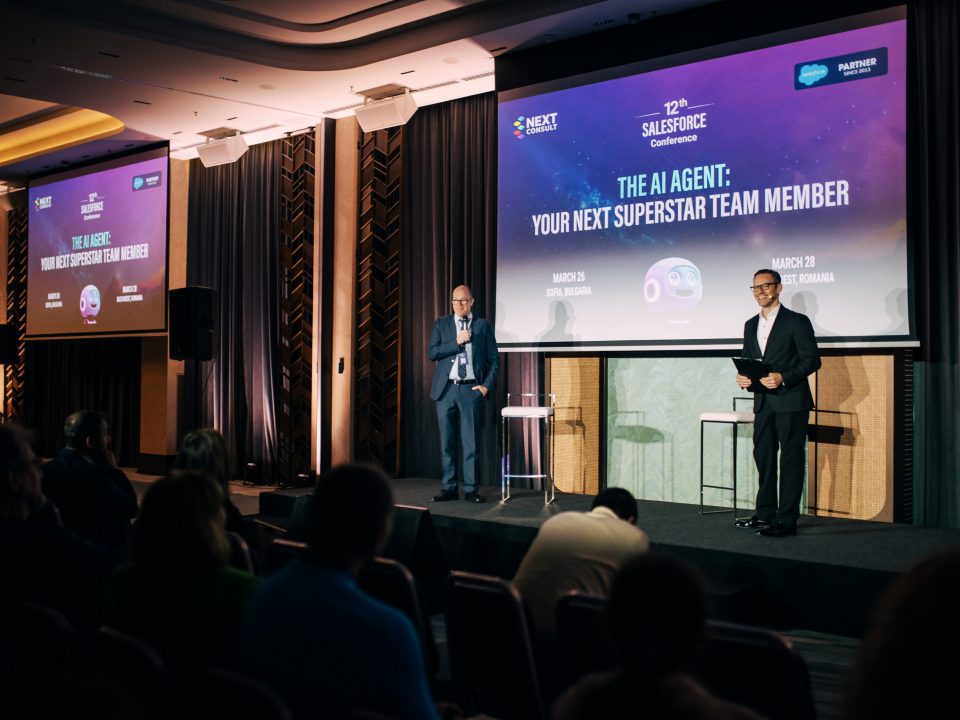
Toshko Petkov, Partner, Business Consulting at Next Consult: “Our Role as a Consulting Company is that of a 'Coach' in Our Clients' Exciting Lean Journey”!
Interview for Engineer.bg
By emphasizing increased productivity and reduced waste, Lean Manufacturing is a proven solution for companies, striving to be at the forefront of implementing innovations in the industry. With the help of new technological capabilities and services, consulting companies are the ones who help manufacturers with their Lean Transformation.
Mr. Petkov, you are a respected expert with many years of experience and you lead one of the fastest-growing Bulgarian consulting firms. Could you tell us more about Next Consult?
Next Consult is a company, focused on Business and Digital Transformation. Our mission is to help our clients become more successful. We founded the company 13 years ago, and as of today, we are proud to have more than 500 clients, a significant part of which are international. We have completed over 1000 projects, built a team of over 110 exceptional professionals. We have, so far, established offices in Bulgaria, Romania, the USA, and the United Kingdom.
What are the main services of Next Consult?
Our portfolio of services is grouped into three main areas. The first one includes Strategy Consulting that helps our clients build a consistent and attractive value proposition for their customers – far better than the competition. In this area, we also develop many functional strategies - for Marketing, IT, etc. The second one is consulting in the field of Operational Management, mainly in relation to the implementation of the Japanese "20 Keys” Methodology for Lean Transformation. This methodology helps our customers become faster, deliver better products and services at a very competitive price by building an organizational culture, where employees are highly motivated and committed to the company's success. Of course, we also provide assistance for the establishment of an optimal organizational structure and improved business processes. The third area is focused on Business Digitalization and Automation through the implementation and further development of world-wide leading IT Systems and Solutions. We are extremely successful in this area, thanks to the knowledge, experience and support of our key partners - Salesforce, SAP, Certinia, Tableau, Uipath and others.
The term "Lean Manufacturing" has not yet found its exact translation in Bulgarian. Tell us how Lean Practices originated and what are their principles.
The automotive manufacturer Toyota is considered to be the originator of Lean Practices. The term "Lean" itself was introduced by the authors of the book "Lean Thinking" - James Womack and Daniel Jones. The main idea is that for a company to be successful, it must focus its efforts on activities that create real added value. Everything that is performed in the company as activities, not perceived by customers as added value for them, is waste and should be eliminated or significantly reduced. A very strong element of Lean culture is the focus on building high motivation and commitment among employees.
Where are Lean Practices applied?
Although Lean Practices originate from the automotive industry, very soon they began to be widely applied in companies across all manufacturing sectors. In the last 20 years, Lean Practices have been applied in all industries, including service industries and the public sector. As of today, I can confidently say that Lean Practices are highly effective and applicable in all industries.
How does a Lean Transformation Program usually start?
First of all, the people that drive the business in a company or institution should understand the Lean concept and should come to believe that Lean is their way to excellence and success. Following that, of course, there are different approaches and methodologies. We develop the Lean Practices of our clients mainly through training and “coaching” applied on all organizational levels of the company.
Our clients see huge benefits in this approach, because it’s not us - the consultants - who implement Lean Practices in their company. In fact, we help them do it themselves. Another major advantage of the "20 Keys" Methodology is the availability of a benchmarking system that allows at the start of the program and periodically - to assess where the company/institution stands in its Lean Practices, compared to world class companies and whether it is progressing or not.
What are the main tools of Lean Manufacturing?
The main tools are largely embedded in each of the 20 Keys of the Lean Methodology. The main ones are: Cleaning and Organizing to Make Work Easy, Rationalizing the System / Goal Alignment, Small Group Activities and many others.
Could you describe what type of wastes can be minimized or even eliminated through Lean Manufacturing?
This is a very easy question. When a client enters into a company, they can see multiple activities that are taking place or expenses that have been incurred or are being incurred. The customer defines which of these activities or costs lead to added value for him and which do not. Anything that does not add value to the customer is waste. The typical 7 wastes in Lean are: Overproduction, Inventory, Defects, Unnecessary Motions, Over-processing, Waiting and Transportation.
How to achieve a smooth implementation of Lean Practices in existing manufacturing?
The most critical success factor in the development of Lean Practices in a company or institution is the involvement of the key people in its management. They must be convinced that the Lean Methodology is their path to success. The Company also needs to ensure the support of the Lean Transformation at all levels of the organization as well as to choose the right methodology and the right consulting company.
What are the typical mistakes that can occur when transitioning to Lean Manufacturing?
Unfortunately, many mistakes can be made. Perhaps the most common is that Lean is implemented at lower levels in the organization and the top management is not heavily involved in the process. Another mistake is when an external consultant comes in and starts making specific reorganizations in production without the company's team being substantially involved in this process. Since we live in a world where everything changes very quickly - products, production volumes, technologies, etc., what is built in this way by an external consultant often “evaporates” within a period of 6 months to 1 year.
What is the consultant's role in the implemention of Lean Practices?
Different consultants have a different approach and role in the processes. Our approach is to have the role of a "coach" on our customers' Lean journey. We teach and coach them on the "20 Keys" practices at all organizational levels and in all departments of the company. We help them at every step, for every Key, as well as with the overall management and development of the program.
How can Lean Principles and Digital Transformation transform a production facility into a factory of the future?
Nowadays, Digital Transformation is undergoing rapid development. It supports all processes in a company. Digitalization creates new business models and new business areas. In this context, Lean is not much different from all other processes. IoT, Big Data, modern analytics tools, robotization, the use of Manufacturing Execution System (MES) give a huge boost to the development of Lean Practices, and this an excellent foundation to create a factory of the future.
Read the interview in Bulgarian here.







